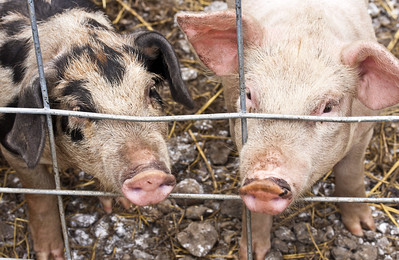
October 7, 2021, by lzzeb
Talking farmed animal health and welfare at the RGS-IBG Annual International Conference, 31 Aug – 03 Sep 2021
A blog by Carol Morris, Associate Professor
With some financial support from the School of Geography’s Research Committee I contributed to the Annual International Conference of the Royal Geographical Society-Institute of British Geographers that took place between 31st August and 3rd September 2021. The conference had been cancelled in 2020 due to the Covid-19 pandemic and in 2021 took place both online and in person. The session to which I contributed was an entirely online event and explored the theme of ‘Reconfiguring farmed animal health and welfare: exploring and transcending borders between spaces, times, species and knowledges’. The paper that I presented was co-authored with Dr Richard Helliwell of the Ruralis Institute, Trondheim and entitled ‘Assembling antimicrobial resistance (AMR) governance in UK animal agriculture’. Richard and I have a long-standing interest in and engagement with the topic of AMR in UK agriculture and the environment, and the conference paper represented an attempt to extend our existing body of published work to which Sujatha Raman (National University of Australia) has also contributed.
The jumping off point to the conference paper is the increasing efforts over the last decade, both nationally and internationally, to manage the challenges of AMR including in, but not limited to, UK animal agriculture. Such efforts have resulted in apparently statistically significant reductions in antibiotic use which are a core component of established practices of animal health and welfare management. For us these interventions prompt questions about whether and how AMR may be opening up a new front in the regulation of agricultural animal life. We work with theoretical insights from assemblage and biopolitical thinking to explore how diverse actors have worked and are continuing to work to assemble a (new) regime of AMR governance in animal agriculture and take a ‘more than human’ interest in how animals are positioned in this process. Methodologically, we approach our task through a qualitative, thematic analysis of documents relevant to AMR and antibiotic use in UK animal agriculture, published between 2000 and 2019 by a breadth of organisations representing UK government, agricultural industry, food retailing and agricultural, environmental and health NGOs.
Our preliminary conclusions are as follows. On the one hand AMR creates opportunities to think and practice differently the regulation of animal lives and farming systems and has the potential to destabilise existing animal-human relations through the efforts to reduce antibiotic use. However, at present the AMR governance assemblage is mobilising means and methods that do not trouble existing modes of regulating animal lives, health and welfare. We argue that this a missed opportunity to tackle the organisation of farming systems in a more fundamental way, with all that this might imply for improving animal health and lives as well as effective action on AMR.
No comments yet, fill out a comment to be the first

Leave a Reply